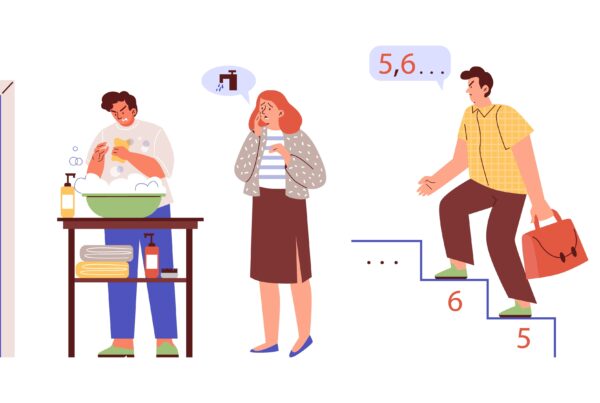Anxiety is a term that most of us have heard at some point in our lives.
People can feel anxious for a variety of reasons such as when they have a presentation or an exam or when there are big changes happening in life e.g. transitioning from primary school to high school. How often do we hear people saying “I am feeling so anxious right now”? Anxiety can happen at any stage of someone’s life. Someone could go through high school without ever feeling anxious however work becomes an anxiety provoking environment for them. Anxiety is a common experience and it is actually normal to feel anxious at times. For most people, when they feel anxious, they find different ways to manage this feeling. Sometimes, these ways are helpful and work really well but then other times, they can be helpful in the short term and not so much in the long term. It is when our ways stop working and anxiety starts to get in the way of living a fulfilled life that you may need to find other ways to manage it.
What is anxiety?
One of the distinct features of anxiety is the proportion of fear or worry that you experience in certain situations. This worry or fear generally has a significant impact on your daily functioning. A lot of the times, people mistake fear for anxiety or vice versa. While fear is an emotional response to an imminent threat, anxiety occurs when fear is triggered in the anticipation of possible future threats which often leads to thinking of worse possible outcomes.
How do you know you are experiencing anxiety?
Although everyone’s experience of anxiety is different from one another, there are some common symptoms that most people tend to experience. These may include:
- excessive worry which is hard to control
- increase heart rate
- chest tightness
- nausea
- sweating
- light-headed
- feeling keyed up
- difficulty concentrating/mind going blank
- trouble falling asleep
- fatigue
- nightmares
- stomach ache
- restlessness
What are some types of anxiety disorders?
There are different types of anxiety disorders and at times, these disorders can co-exist with each other. Some of the common types of anxiety disorders are:
Social Anxiety Disorder
Social anxiety disorder involves experiencing anxiety symptoms in social situations. This also includes the excessive fear of being evaluated by others e.g. being observed or scrutinised by others. These situations can lead to high levels of anxiety sometimes leading to avoidance of social interactions to manage the level of distress thereby impacting someone’s life.
Generalised Anxiety Disorder
Generalised anxiety disorder occurs when people experience excessive and persistent worry and anxiety across various contexts including home, work or social life.
Specific Phobia
People with specific phobia are fearful about circumscribed objects or situations. These objects or situations provoke feelings of persistent anxiety almost straightway often leading to people become avoidant of these objects or situations.
Panic Disorder
In panic disorder, people experience recurrent panic attacks and are persistently worried about having more panic attacks in various situations. Panic attacks can be described as a surge of intense fear that reaches its peak within minutes which is usually accompanied by physical symptoms of anxiety such as nausea, chest pain or difficulty breathing.
What can I do when I am feeling anxious?
When anxiety starts to get in the way of life and causes significant distress, it is very helpful to reach out to people you are close to like friends or family. Often, it can also be helpful seek professional help from psychologist who can help assist with a range of strategies to help manage the symptoms of anxiety and learn about how anxiety is working for you.
What does the treatment of anxiety look like?
A common approach to treatment of anxiety involves evidence-based cognitive behaviour therapy. Cognitive behaviour therapy is an umbrella term and it involves psychoeducation, cognitive work, behavioural experiments (exposure) and strategies such as controlled breathing. These are powerful tools to help you become your own therapist in the process as you learn about your anxiety and manage it in a healthy way to live the best life you can.
Clinical and Registered Psychologists are trained to provide Cognitive Behavioural Therapy and other evidence based treatments to help you overcome your symptoms of anxiety. If you’d like to find out more, please feel free to contact us.




